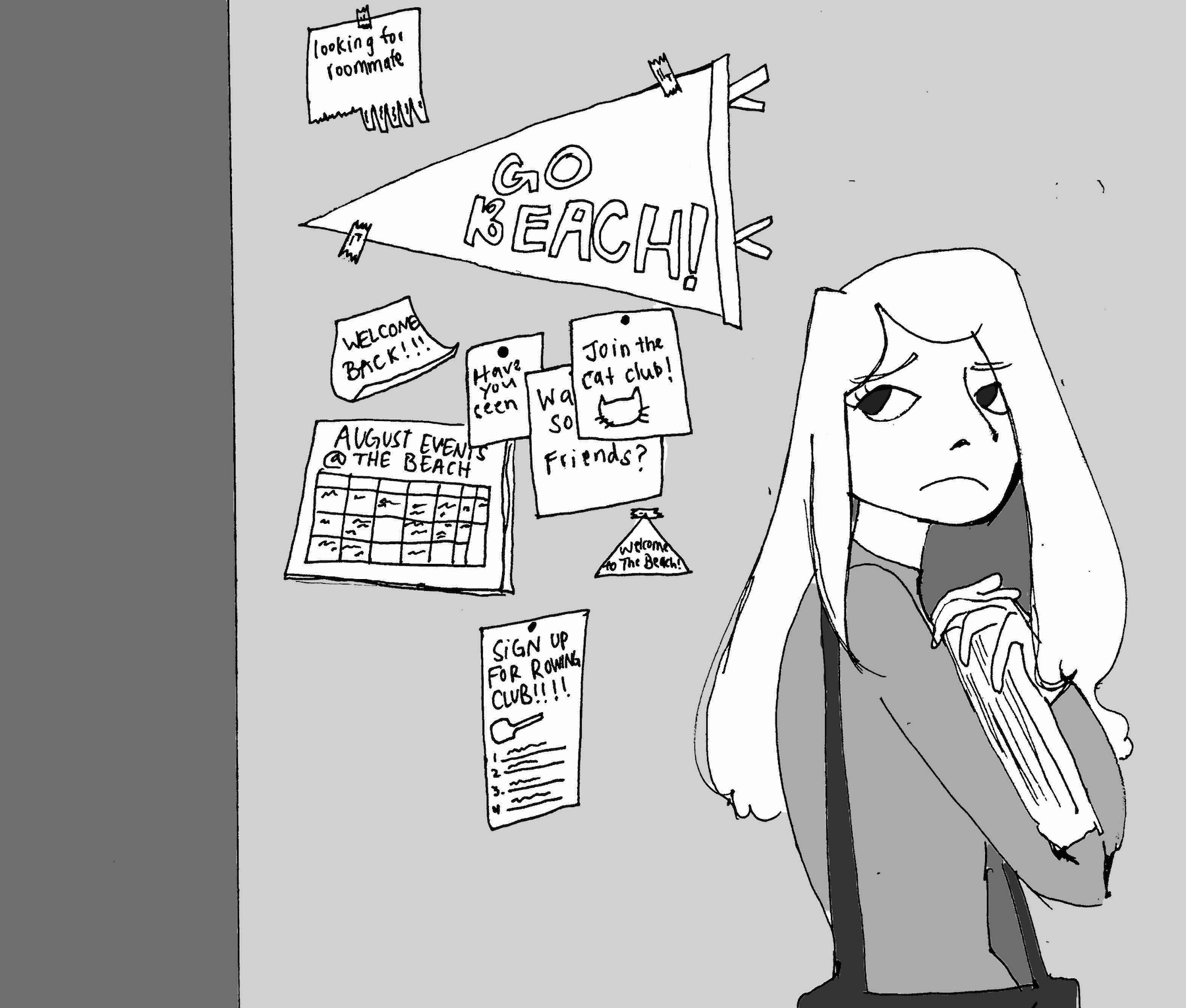For most students, a lack of parking spaces, on-campus nutritional options, having to write long research papers and doing tons of homework are annoying college stressors.
But for me, my status as a third-year international student is the most stressful part of starting my semester.
I’m a junior student now, but my anxiety attacks are the same as they always have been.
In each class at the beginning of each semester, I begin feeling my heartbeat accelerate and my chest tightens before it is my turn to present myself to the strangers in my classes. Why do I get so nervous? It’s because everyone is about to hear my Mexican accent.
I always wonder if I’m going to be accepted by my peers even though I come from a different background than most of the people in my classes. Although I feel most students are nice to foreigners, I can’t help but feel that some people don’t think I belong in this country.
Regardless of this campus being a very racially diverse one, I sometimes feel like I don’t belong as a result of my skin color, accent and mannerisms.
It is easier for Mexican-American and American folk to get along because they are both raised in the same society. Moreover, there is a lack of a language barrier. In my case, I wasn’t born here. Combine my accent with the color of my skin, and I’m what many bigots consider a “wetback.”
Not to mention, my accent makes me insecure. I constantly wonder what many of my classmates are thinking of me because of it.
It’s always awkward to speak in a new class for the first time. I notice how many of my classmates turn around to stare at me while I try to gather my thoughts and figure out how to say a certain something in English.
Just last week on the first day of the fall semester, I asked a question to my professor during class, and immediately wondered if my accent sounded too thick after asking it. Situations like that make me feel insecure.
Although my voice may sound shaky and hesitant, my goal is to make friends and create a comfortable environment for everyone that I network with.
Most don’t know that as a result of me constantly visiting the U.S. with my parents ever since I was a toddler, I created a connection with this country.
As a foreigner, not only do I have to deal with the regular stressors university life provides me with, but I also have to get used to way this country’s educational system works.
In Mexico, it’s difficult to get into one of the nation’s most prestigious public universities, such as the National Autonomous University of Mexico or The Instituto Politécnico Nacional; however, getting into a private university is rather easy.
Essentially, all you have to do is pass an entry-level exam and pay some kind of enrollment fee. It gets better – you don’t even have to research what classes you have to take towards your major;you’re given that information the first week of class.
Here at Long Beach, I have to carefully choose the classes necessary to graduate in a timely fashion. If I make a mistake on choosing one, I’ll end up wasting serious time and money.
For instance, last semester I was pretty confused while creating my schedule and ended up taking a class I had already passed back in community college.
But I know what you might be thinking: If studying here is such an “issue” for my foreign self, why don’t I just go back to Mexico?
The answer is painfully simple: Mexico, unfortunately, doesn’t provide very much financial help for the country’s many university students. Even though tuition is cheaper in Mexico, it is still not affordable for many, including myself.
Not to mention, Mexico has the highest dropout rate in Latin America. According to the Organisation for Economic Co-operation and Development, Mexico has a dropout rate of 50 percent.
This means Mexican students are both struggling academically and financially, and many choose to work instead of attend school.
So I’m here now, and I am very excited to be at a university like Cal State Long Beach.
Compared to Mexico, the buildings here are much newer and advanced. Many buildings in Mexico don’t even have air conditioning.
My journalism classrooms here are filled with computers to work with during class — a luxury I didn’t have back home.
Even the fact that this university has a rec center is something I’m amazed by.
However, although I admire the many luxuries on campus, it’s difficult for me to feel completely at home. I don’t necessarily feel this way because people discriminate against me but because I grew up in a much different place than the majority of my US-born colleagues.
A major disadvantage I have studying here is that because my first language is Spanish, I have had to take several English as a second language classes that have made my road to graduation a much slower one.
In Mexico, I would have graduated five years ago, by the age of 22.
Us Mexicans like making people feel welcome. I’m sure you’ve all heard the phrase, “Mi casa es su casa,” — well, it’s a Mexican one and it’s very true. I’m here to help my fellow 49ers out as much as I can.
I continuously remind myself that I have to be brave and make this university experience a positive one. There will be times where I succeed, and many where I fail, but one thing’s certain: I’ll grow with each experience.
I know I’ll accomplish great things while at The Beach, even with a thick accent. I believe that not even the sky’s the limit therefore I’ll embrace this experience until I reach my goal which is graduation.




